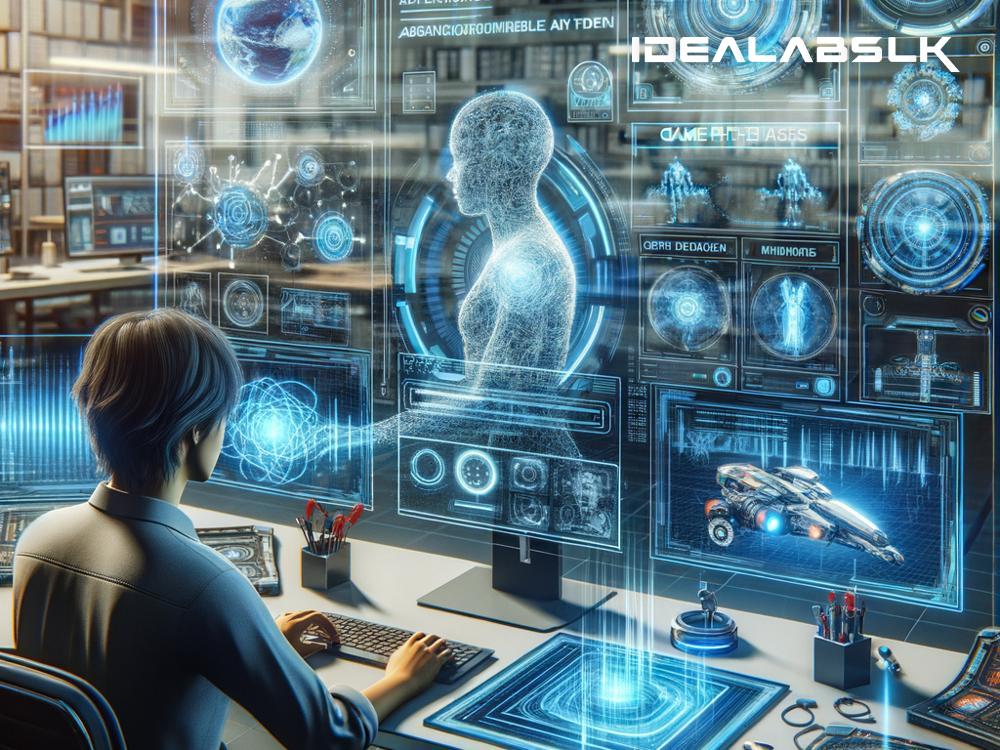How AI Will Change Game Physics in 2025: More Realistic and Immersive Gameplay
As we fast-forward into the future, specifically the year 2025, the gaming world is on the brink of a monumental shift, thanks to the wonders of Artificial Intelligence (AI). The integration of AI into game physics isn't just a small step towards improvement; it's a giant leap towards creating gaming experiences that are unbelievably realistic and incredibly immersive. So, what does this mean for gamers and the gaming industry? Let's dive in.
The Magic of AI in Game Physics
First, let's break down what we mean by 'game physics'. In simple terms, game physics refers to the rules and laws that govern how everything in the game world moves and interacts, from characters and vehicles to the environment itself, like trees swaying in the wind or buildings crumbling to the ground.
Up until now, game physics has been governed by pre-written code by game developers. While this has been effective to a degree, it comes with limitations. It's impossible for developers to predict and code every possible action or reaction within a game, leading to experiences that can sometimes feel scripted or unrealistic.
Enter AI. AI is poised to revolutionize game physics by introducing real-time learning and adaptation. In other words, the game learns as you play, making adjustments and reactions that are unpredictable and more aligned with how things would behave in the real world. So, how will this change the game (literally) in 2025? Here are a few ways:
More Realistic Interactions and Movements
Imagine playing a game where if you drive a car into a wall, the damage isn't a pre-determined animation but depends on factors like the speed at which you were driving, the angle of impact, and the materials of the car and the wall. That's the level of detail AI can bring to game physics. Every interaction becomes unique, adding a layer of realism that has been hard to achieve up to now.
Environments That React to Your Actions
AI will also enable environments to adapt and react in real-time to player actions. Forest fires could spread based on wind direction and strength, buildings could collapse under their own weight if their structural integrity is compromised, and NPCs (Non-Playable Characters) might realistically react to both their environment and player actions. This means each play-through offers a unique experience, driven by the player's interactions with the game world.
Enhanced Immersion Through Dynamic Weather and Natural Disasters
With AI, dynamic weather systems and natural disasters can have real, tangible effects on the game world. Imagine a storm that not only looks impressive but also impacts visibility, character movement, and even the game's storyline. Or an earthquake that alters the landscape, opening up new paths while closing others. This level of immersion and interactivity has been the dream of many gamers, and it's about to become reality.
A Learning Enemy
One of the most exciting prospects is the evolution of AI enemies. Rather than having a set number of tactics, AI enemies in 2025 will learn from your play style, adapting their strategies in real-time to provide a challenging and unexpected gameplay experience every time. This means no two battles will be the same, adding to the game's replayability and engagement.
The Future of Multiplayer
AI's influence on game physics will also transform multiplayer experiences. With AI-driven game physics, each player's actions can have a unique impact on the game environment, which in turn affects every other player in real-time. This could lead to more collaborative and strategic gameplay, as players adapt not just to each other but to an ever-changing game world.
Conclusion
The integration of AI into game physics by 2025 is set to redefine what we consider 'immersive' in video games. With more realistic interactions, environments that respond and adapt to player actions, and unpredictable gameplay scenarios, we're on the cusp of experiencing video games in a way that blurs the lines between virtual and reality.
What's clear is that AI is not just enhancing the gaming experience; it's revolutionizing it. As developers continue to harness the power of AI, we can only imagine the levels of realism and immersion that will be achieved. The future of gaming is bright, and it's powered by AI.

